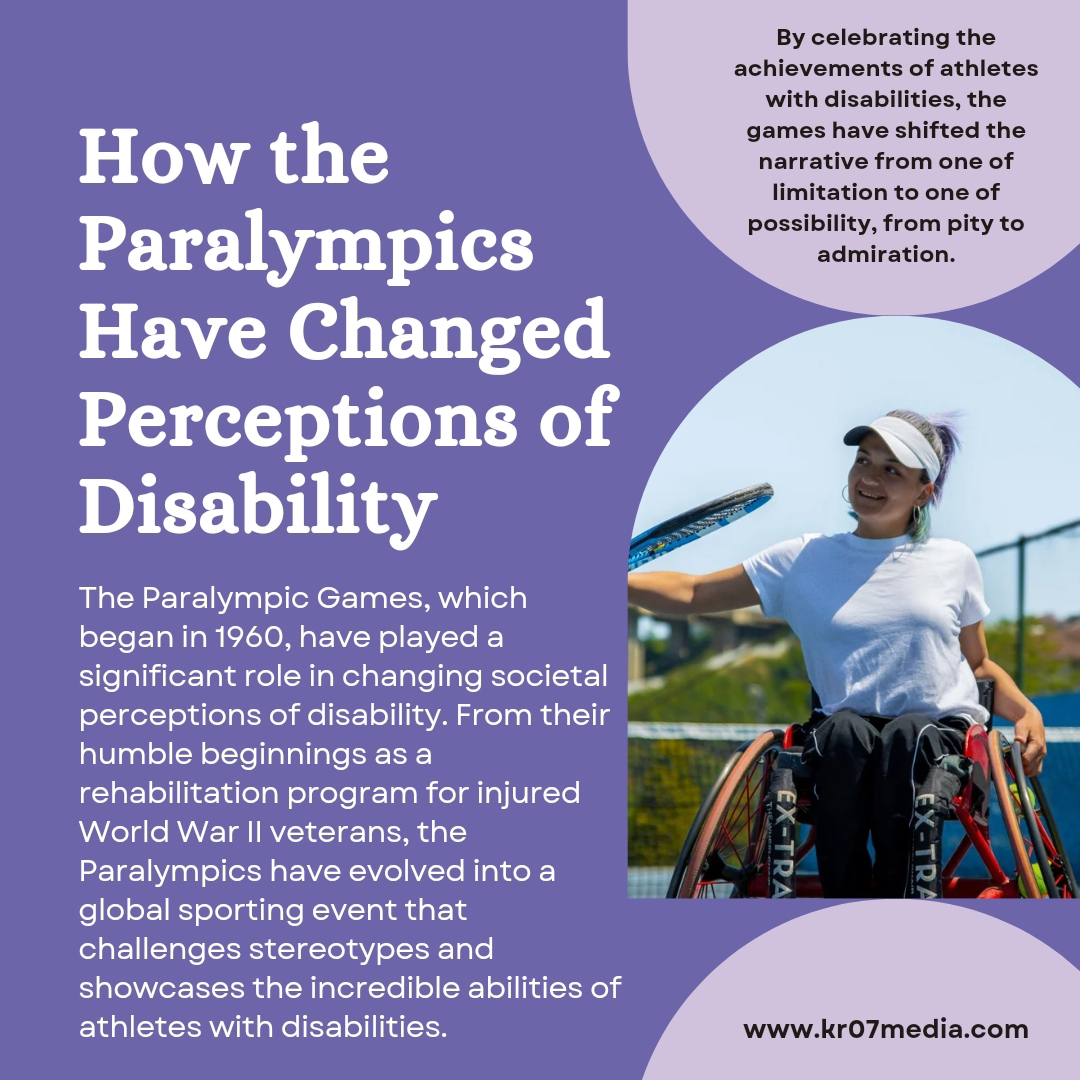The Paralympic Games, which began in 1960, have played a significant role in changing societal perceptions of disability. From their humble beginnings as a rehabilitation program for injured World War II veterans, the Paralympics have evolved into a global sporting event that challenges stereotypes and showcases the incredible abilities of athletes with disabilities. This transformation has not only elevated the status of Paralympic athletes but has also had a profound impact on how society views disability as a whole.
A Shift from Pity to Admiration
One of the most significant ways the Paralympics have changed perceptions of disability is by shifting the narrative from one of pity to one of admiration and respect. In the past, people with disabilities were often viewed through a lens of sympathy, seen primarily as individuals who needed help rather than as individuals with their own strengths and abilities. The Paralympics challenge this outdated view by placing athletes with disabilities in the spotlight and highlighting their physical prowess, determination, and competitive spirit.
Through the Paralympic Games, society is exposed to stories of resilience and excellence that redefine what it means to live with a disability. Athletes like Tatyana McFadden, a wheelchair racer who has won multiple medals in both the Summer and Winter Paralympics, and Jonnie Peacock, a British sprinter with a prosthetic leg, have become household names. Their achievements inspire not just people with disabilities, but anyone facing challenges, showing that disability does not equate to inability.
Changing Media Representation
Media coverage of the Paralympics has also played a crucial role in changing perceptions of disability. In the early years of the Paralympics, media coverage was minimal, and when it did occur, it often focused on the athletes' disabilities rather than their sporting achievements. However, over the years, this has changed dramatically. Today, Paralympic athletes are often featured in the same way as their Olympic counterparts—through in-depth profiles, live broadcasts, and extensive analysis of their performances.
The increase in media coverage has helped to normalize the presence of people with disabilities in mainstream sports, breaking down barriers and challenging preconceived notions about what disabled individuals can achieve. The visibility of Paralympic athletes in the media has also encouraged broader conversations about accessibility and inclusion, not just in sports but in all areas of life.
Driving Social and Political Change
The Paralympics have not only changed perceptions of disability on an individual level but have also driven broader social and political change. The games have been a powerful platform for advocating for the rights of people with disabilities and for highlighting the need for greater accessibility in public spaces. The success of the Paralympics has pressured governments and organizations to implement policies that promote inclusion and equality for people with disabilities.
For example, the London 2012 Paralympics were widely regarded as a turning point in how disability was perceived in the UK. The games led to increased awareness and a stronger commitment to improving accessibility in public transportation, workplaces, and public services. This legacy continues today, with many countries using the Paralympics as a catalyst for enacting disability rights legislation and promoting social inclusion.
The Impact on Self-Perception
Finally, the Paralympics have had a profound impact on how people with disabilities perceive themselves. By showcasing athletes who excel at the highest levels of sport, the Paralympics send a powerful message that having a disability does not limit one's potential. This has inspired countless individuals with disabilities to pursue their own goals, whether in sports or other fields, and has fostered a greater sense of empowerment and self-confidence within the disabled community.
In conclusion, the Paralympics have been instrumental in changing perceptions of disability. By celebrating the achievements of athletes with disabilities, the games have shifted the narrative from one of limitation to one of possibility, from pity to admiration. They have increased the visibility of people with disabilities in the media, driven social and political change, and empowered individuals to see themselves as capable and valuable members of society. As the Paralympics continue to grow in prominence, their impact on how we view disability will only continue to deepen, creating a more inclusive and understanding world for all.



